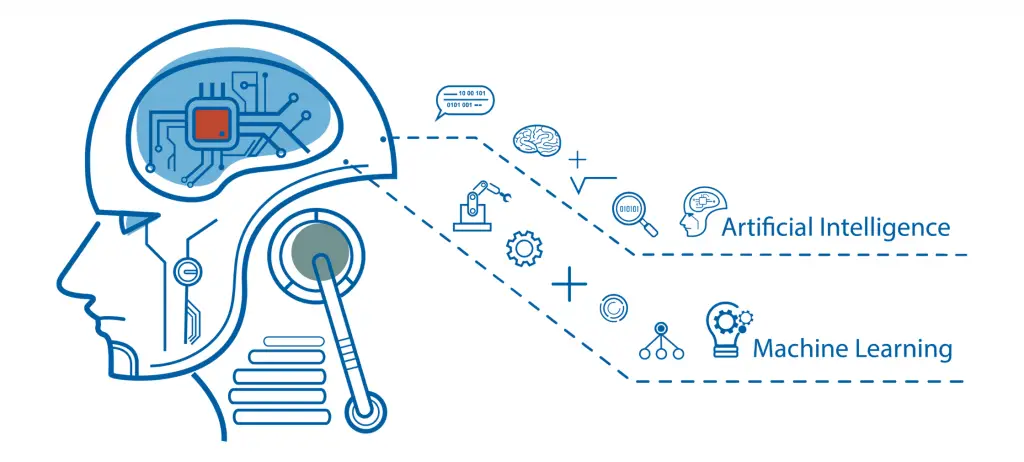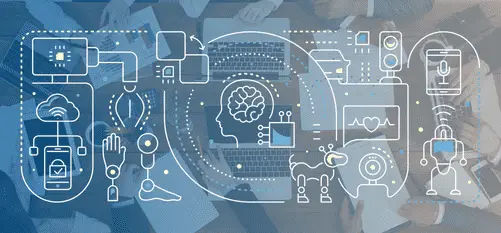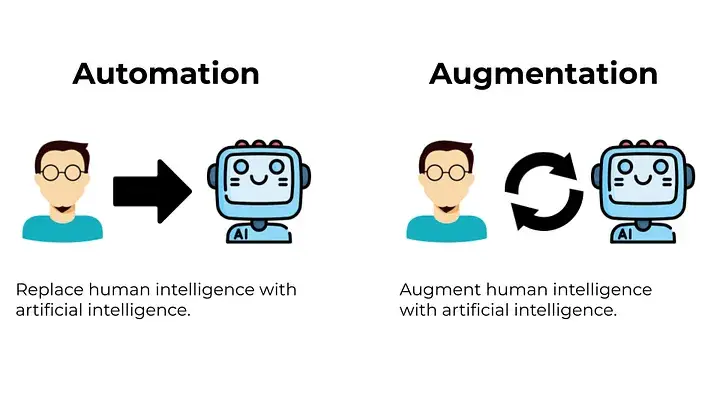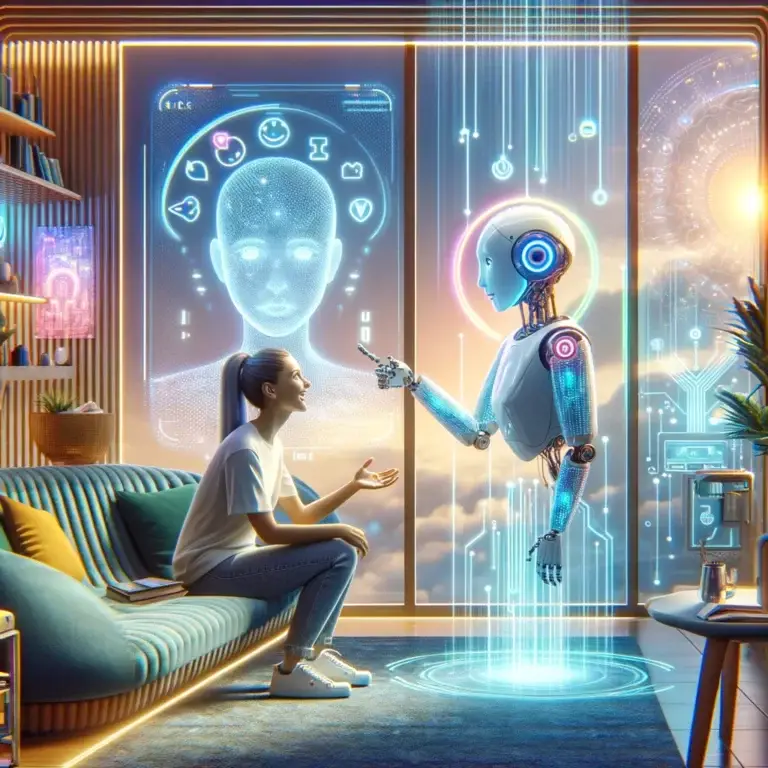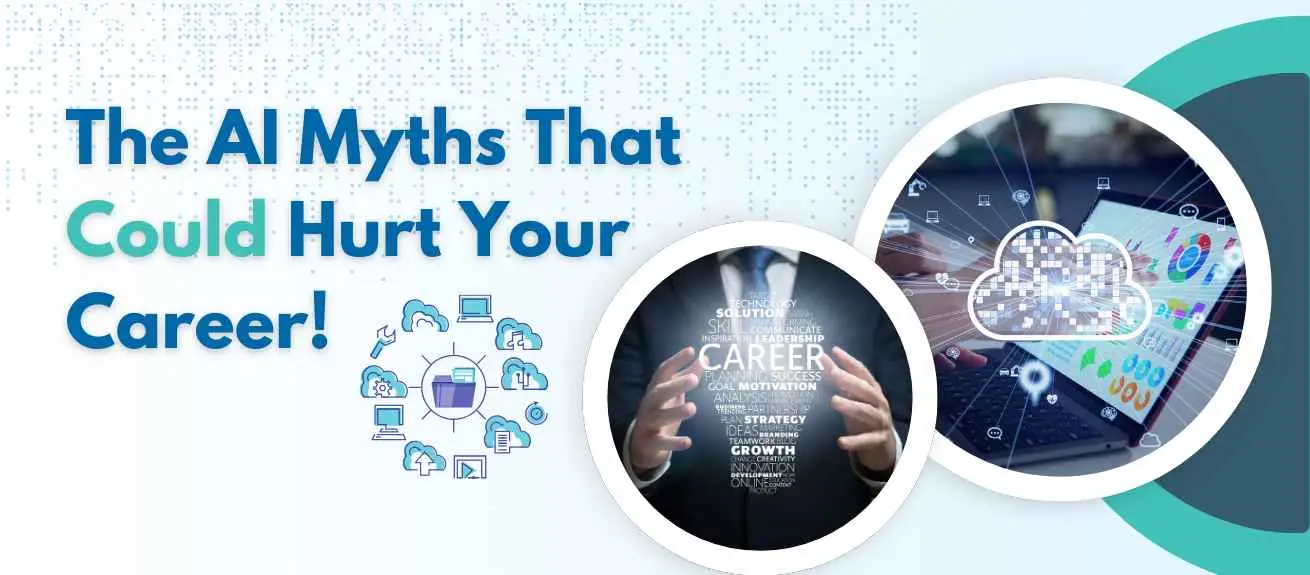
Unveiling AI Myths
- Date July 12, 2024
AI Myths That Could Hurt Your Career
Hello, curious minds! Willing to jump into the captivating world of AI myths and shed light on the truth? Strap in, because we’re about to expose some of the biggest and most common myths about artificial intelligence, which, trust it or not, may put your job at risk.
The Impact of AI on Job Market: Myths and Realities
In the beginning AI systems learn from data, which frequently demonstrates societal biases. If previous information used to train AI has biased results, the AI is likely to continue perpetuating these biases. For example, if a machine learning system is educated on recruiting data that previously preferred specific demographics, it may continue to favor those groups over others.
In addition, the computer programs themselves may induce bias. Choices about what data to collect, how to categorize it, and how to weigh certain criteria can all introduce bias into the artificially intelligent machines’ process of making choices. Even well-intentioned programmers may mistakenly introduce or fail to account for tiny biases in the data.
In the end, the implementation and use of AI can provide biased results. Users of artificial intelligence programs may not completely understand, these technologies’ weaknesses and biases result in excessive reliance on erroneous results. Furthermore, loops of feedback might arise, in which flawed decisions made by AI replicate errors in subsequent data, aggravating the problem over time.
A Guide To Artificial Intelligence Myths
First, why are there endless myths about artificial intelligence? AI narratives are frequently short, including apocalypse prophecies to silver bullet frauds. Yet, why should we pay attention to Why Addressing AI Myths is Important?
Why in the world is it vital to expose AI misconceptions
Knowing these fallacies may cloud your perception of AI’s impact in the workplace, potentially impeding your career advancement. It’s like trying to navigate a maze using the wrong map. Isn’t this frustrating?
Myth 1: Artificial Intelligence Is Going To Replace All Our Jobs From Us
One of the most terrifying misconceptions is that AI will take away all our employment, leaving us to suffer boredom in a jobless dystopia. But in this case is the lowdown.
Understanding Automation versus Augmentation
AI is not a replacement for humans; rather, it augments human skills. Consider it a companion that does monotonous duties while you focus on the essential creative areas of your career.
Understanding Automation versus Augmentation
Figures demonstrate that AI generates more employment than it destroys. New positions, such as artificial intelligence experts and data researchers, are sprouting up like wildflowers after the rain. The future profession will progressively work together with AI, creating opportunities that we cannot yet fathom.
Myth 2: Artificial Intelligence Can Make Impartial Choices
The fallacy since AI can draw unbiased conclusions comes from the assumption that machines, unlike humans, are fundamentally unbiased and reasonable. nevertheless, ignores the fact that AI systems are designed, educated, and operated by people, rendering them vulnerable to the biases inherent in human decision-making. Bias can infect AI at numerous phases, including data collecting, algorithm development, and decisions about programming.
The True Nature of Artificial Intelligence Beliefs
AI systems acquire knowledge from data. What if the data reflects human biases? The AI will be prejudiced, too. Such information must be rigorously scrutinized and corrected to ensure that AI decisions are as fair as feasible.
How Do We Guarantee Artificial Equal treatment?
Involving diverse teams in AI development can aid in bias detection and mitigation. Remember that fairness in AI is not a luxury; it is a requirement. By establishing more inclusive datasets and regularly evaluating AI systems, we can decrease prejudice and assure more egalitarian results.
Myth 3: That Need to Be a Technical Expert to Find Employment in AI
This notion is as persistent as bubblegum under a school desk. Let’s unstick it, shall we?
Different Expertise are Essential in the Artificial Intelligence Sector
AI isn’t just for techies. AI has a place for everyone, including writers, artists, and psychologists. A wide range of abilities is essential to the field’s success.
Acquiring artificial intelligence doesn't seem that hard
With so many internet-based classes and resources available, learning regarding AI is now easier than ever. Curiosity and a willingness to learn are among your greatest strengths here. Platforms such as TechPath, Coursera, edX, and Khan Academy provide beginner’s courses to get you started.
Myth 4: Intelligent machines can grasp feelings for humans effectively
Though AI has made advancements when discovering emotional cues, it is not entirely compassionate.
Difficulties of Artificial Intelligence for Understanding Emotional
AI struggles with comprehending the complexities of human emotions. For example, it could not grasp why the sarcastic “great” truly implies “terrible.” Humans continue becoming better at emotional intelligence.
Myth 5: Artificial intelligence is just an expensive expenditure
The perception that AI is only a pricey development ignores the significant benefits it may bring to a variety of industries. While integrating AI technologies requires a preliminary expenditure of resources, time, and experience, the long-term advantages frequently surpass the expenses. AI may increase efficiency, creativity, and competitive advantage, making it a useful asset rather than a cost.
For starters, AI boosts production through eliminating regular jobs, freeing up human workers to focus on more complicated and creative projects. This can result in significant cost reductions and higher output consistency. Production, for example, can benefit from AI-driven automation to expedite operations, decrease errors, and maximize resource utilization.
Second, artificial intelligence (AI) may deliver deep insights through data analysis, resulting in enhanced decision-making processes. Businesses can use AI to assess market Trends, customer behavior, and operational data all contribute to more knowledgeable strategy and better customer experiences. This strategic advantage can lead to higher revenue and market share.
Furthermore, AI promotes development by facilitating the creation of new products and services. In healthcare, for example, AI-powered medical equipment can improve patient outcomes while lowering costs by giving correct and quick findings.
Do you think employing AI is as pricy as a ticket to Mars? Not necessarily.
Cost-beneficial Evaluation of AI
Though the initial expenditures can be large, the long-term rewards and efficiency that AI provides can offset the costs. Furthermore, AI solutions have grown more affordable with time.
Small-Scale Businesses Applications Of Artificial Intelligence
Begin small. You do not need to completely reestablish your system from beginning to end. Small, strategic AI installations can provide tremendous advantages. For example, chatbots can answer consumer queries, freeing up staff members to do more for more complex tasks.
Ways To Safeguard Your Professional Life Versus AI Fallacies
Continuous Improvement and the ability to adapt
The best defense against the changing tides is a good offensive. Continue to be intrigued, learn new things and be adaptable. Remember that AI is a tool, not a substitute.
Integrating AI in the field you work in.
Explore how AI is applied in your field and become comfortable with it. Mastering AI can help you become a valuable resource to your team or organization.
Conclusion:
Now here there you have it, the reality regarding the AI incorrect assumptions that have kept you awake at night. By accepting AI as an influential partner and keeping informed, you not only enhance and protect your career, but also pave the way for unparalleled development and innovation.
Although AI demands an initial financial commitment, it produces significant returns in efficiency, innovation, and competitive advantage, making it a wise and strategic decision instead of one that is expensive.
Frequently Asked Questions
Welcome to the FAQ section for our blog post on unlocking the secrets of Gen AI and the essential tools required for success. Here are some common questions and answers to help you grasp the essence of this transformative topic:
AI complements, not takes over, the intelligence of humans. The primary focus revolves around collaboration rather than rivalry.
AI may yield creative results, but it misses the inherent hunger and emotional understanding that human creativity possesses.
Begin with instructional materials geared to your comprehension level, join AI forums, and don’t be afraid to get your fingers dirty with assignments.
While scripting is useful, non-technical jobs in AI are equally important. Concentrate on the advantages each distinct competencies can add to the AI field.
Research demonstrates that technical developments generate more jobs than they eliminate. Though some positions might change or vanish, other Chance will arise.
You may also like
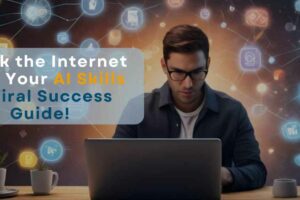
AI Skills to Break the Internet: Your Guide to Going Viral!
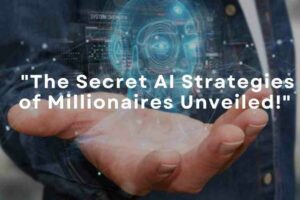
Unveiling AI Strategies of Millionaires


